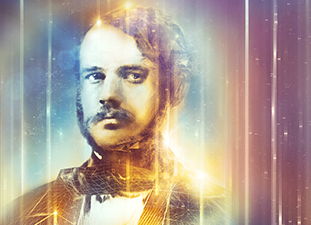- German Chancellor Merkel to attend ceremony in Berlin on November 29
- About 100 guests from government, business, science, culture and media
Werner von Siemens, born on December 13, 1816, would have turned 200 years old this year. On November 29, Siemens is marking the anniversary of its company founder’s birth by holding a gala event in the Mosaikhalle (Mosaic Hall) at its headquarters in Berlin. In addition to German Chancellor Angela Merkel, more than 100 prominent guests representing government, business, science, culture and the media are expected. Joe Kaeser, President and CEO of Siemens AG, will open the ceremony. Nathalie von Siemens, a great-great-granddaughter of Werner von Siemens, Managing Director and spokesperson of the Board of Siemens Stiftung and a member of the Supervisory Board of Siemens AG, as well as Gerhard Cromme, Chairman of the company’s Supervisory Board, will also give speeches in honor of the company founder.
“I’m very pleased that Chancellor Angela Merkel will be attending our ceremony in Berlin, where we’ll be celebrating Werner von Siemens’ achievements. Werner von Siemens was among the key individuals who blazed the trail to the modern age. His entrepreneurial mindset, ingenuity and enthusiasm laid the foundation for this enterprise and remain crucial pillars of our company culture to this day. Werner von Siemens’ pioneering achievements brought lasting change to everyday lives,” said Joe Kaeser.
At the Siemens location in Berlin an exhibition is commemorating the life of the inventor and entrepreneur. Werner von Siemens discovered the dynamo-electric principle and is regarded as one of the founding fathers of modern electrical engineering. On October 12, 1847, Werner Siemens and Johann Georg Halske founded “Telegraphen Bau-Anstalt von Siemens & Halske” in Berlin, the company from which today’s Siemens AG would later emerge. Operations began with ten employees in a rear courtyard in Berlin. In addition to telegraphs, this small workshop primarily manufactured railway electric signal-bell systems, cable insulation and water meters. Within just a few decades, it had advanced to become one of the world’s largest electrical engineering and technology firms. At the time of Werner von Siemens’ death, the company had 6,500 employees around the world and operated regional businesses in the UK, France, Austria, Hungary, Russia and the U.S.
Werner von Siemens was born in Lenthe, near Hanover, in 1816. He was the fourth of 14 children in a tenant-farming family. A three-year training program at the Artillerie- und Ingenieurschule (Artillery and Engineering School) in Berlin provided a solid foundation for his future work in what was then the new field of electrical engineering. His most important inventions included the pointer telegraph (1847), the world’s first electric railway (1879) and the world’s first electric trolleybus (1882). In addition, he is considered the discoverer of the dynamo-electric principle, which he presented to the public in January 1867. Werner von Siemens was instrumental in the establishment of Germany’s foundational legal framework for protecting commercial rights to technical innovations. He was also ahead of his time in the area of social policy: in 1872, he set up a Pension, Widows’ and Orphans’ Fund at his company. In 1888, German Emperor Friedrich III elevated him to the nobility. Werner von Siemens died in his home in the Charlottenburg section of Berlin just a few days before his 76th birthday on December 6, 1892.























